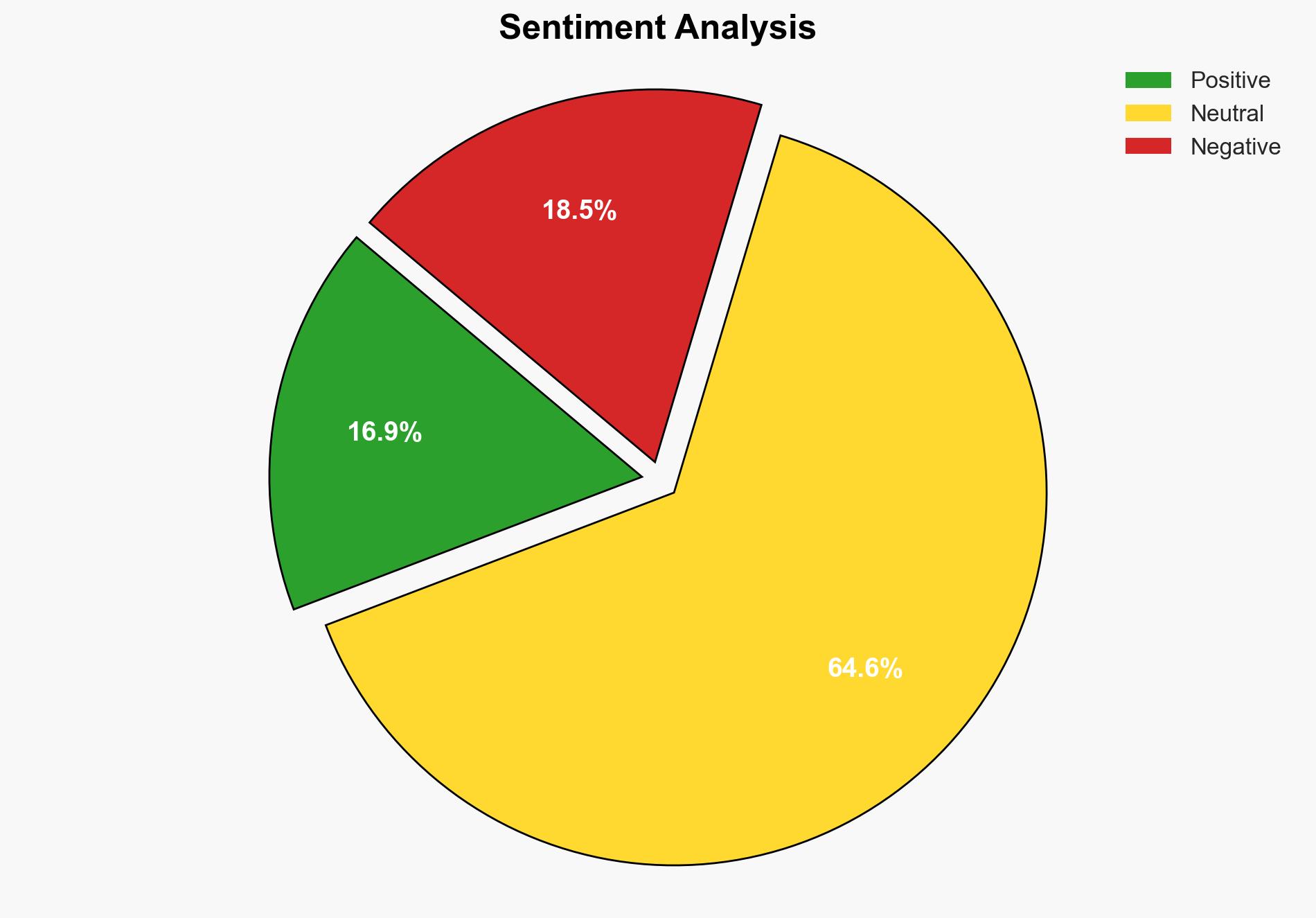Iraq says key Islamic State leader is dead – Globalsecurity.org
Published on: 2025-03-15
Intelligence Report: Iraq says key Islamic State leader is dead – Globalsecurity.org
1. BLUF (Bottom Line Up Front)
A senior leader of the Islamic State, Abdallah Makki Muslih Al Rufay, has been confirmed dead following a precision airstrike in Iraq’s Anbar desert. This operation, coordinated by Iraqi and Kurdish forces with support from U.S. Central Command, marks a significant counterterrorism achievement. The death of Al Rufay, also known as Abu Khadija, is expected to disrupt the group’s operations in Iraq, Syria, and Turkey. However, the potential for a resurgence of Islamic State activities remains, necessitating continued vigilance and strategic counterterrorism efforts.
2. Detailed Analysis
The following structured analytic techniques have been applied for this analysis:
General Analysis
The elimination of Abdallah Makki Muslih Al Rufay represents a critical blow to the Islamic State’s operational capabilities. Al Rufay was a key figure in the group’s external operations and held a significant position within its executive body. His death is a culmination of years of intelligence gathering and operational planning. The operation’s success underscores the effectiveness of joint efforts between Iraqi forces, Kurdish regional authorities, and U.S. military support. Despite this success, intelligence estimates suggest the Islamic State retains a substantial number of fighters, primarily in Syria, posing an ongoing threat to regional stability.
3. Implications and Strategic Risks
The death of Al Rufay could lead to a temporary disruption in the Islamic State’s operations. However, the group’s ability to replace leaders and adapt to changing circumstances poses a continued risk. The potential for increased attacks in Iraq and Syria remains high, particularly as the group seeks to reassert its influence. Additionally, the ongoing political instability in the region, including the situation in Syria, could provide opportunities for the group to regain strength. The rise of Abdul Qadir Mumin in Somalia further indicates the group’s capacity to expand its influence beyond the Middle East.
4. Recommendations and Outlook
Recommendations:
- Enhance intelligence-sharing mechanisms among regional and international partners to preempt potential threats.
- Strengthen border security and surveillance to prevent the movement of fighters and resources.
- Invest in counter-radicalization programs to undermine the group’s recruitment efforts.
Outlook:
In the best-case scenario, the death of Al Rufay leads to a significant weakening of the Islamic State’s operational capabilities, reducing the frequency and scale of attacks. In the worst-case scenario, the group successfully replaces its leadership and escalates its activities, exploiting regional instability. The most likely outcome involves a continued, albeit diminished, threat from the group, necessitating sustained counterterrorism efforts and regional cooperation.
5. Key Individuals and Entities
The report mentions significant individuals and organizations, including Abdallah Makki Muslih Al Rufay, Abu Khadija, Mohammed Shia Al Sudani, Donald Trump, and Abdul Qadir Mumin. These individuals are central to the events described, influencing both the current situation and future developments.





